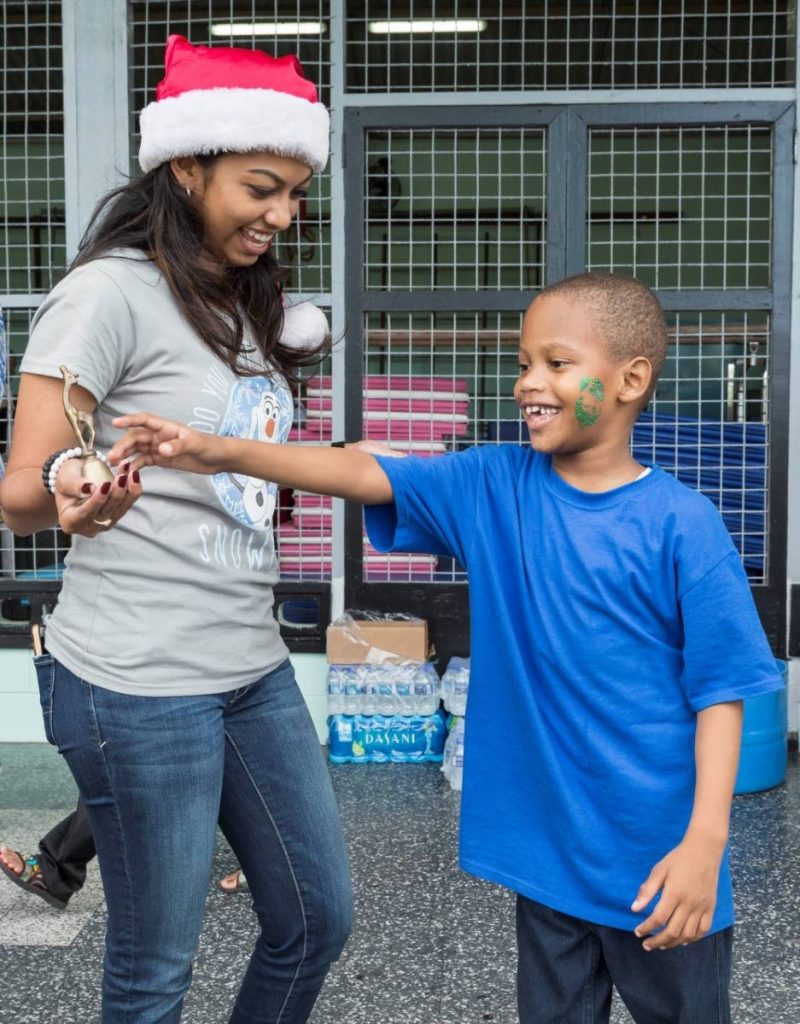Disability etiquette for TT

DR RADICA MAHASE
On December 3, TT celebrates International Day of Persons with Disabilities. Individuals with disabilities and their parents/caregivers often complain that in TT, the wider society is not accepting or accommodating and even less inclusive of them.
Too often people with disabilities do not go out in public spaces because people stare at them and tell them all kinds of things. On the other hand, there are many people who may want to befriend individuals with disabilities but they simply don’t know how to do so.
As we work towards Building Back Better: toward a disability-inclusive, accessible and sustainable post covid19 World, this year’s theme, here are some disability etiquette that will help promote respectful communication and interaction with people with disabilities.
Do not stare! This is one of the biggest issues that people with disabilities complain about in TT. There is a difference between noticing someone on a wheelchair or a child having a meltdown in a mall and actually standing up and starting at people who we consider to be "different", at what we don’t understand or don’t know about. However, simply put, it is very rude to stare.
Think before you speak! Please don’t go up to someone in a wheelchair and say “a a, yuh cyah walk" or to someone with a walking cane and say “yuh cyah see.” As ridiculous as these may sound, people actually say things like this. People with disabilities don’t need you to point out their disabilities – they live with it everyday so they are very aware of it.
Be careful of using offensive terms! Words like handicapped, wheelchair-bound, lame, crippled, retarded and dumb are definitely not acceptable terms to use. The more politically correct terms are "Wheelchair accessible" and "person with disability," etc. The idea is to identify the person before the disability, to not define the person by his/her disability.
Don’t ask about a person’s disability unless they mention it. This is something that we tend to do a lot in TT – we see someone with a disability and we don’t think twice about asking outright. We see this as being open and trying to be friendly. But this is really impolite and intrusive for people with disabilities.
Do not underestimate the abilities of someone with a disability. Not because a person is non-verbal mean that he or she cannot communicate or cannot hear and understand you. There are many people with disabilities who can take care of themselves without any assistance. They understand what they’re capable of and what their limitations are, so there might not be the need to feel sorry for them or to rush to take care of them.

Ask if the person needs assistance before providing it. A visually-impaired friend of mine once told me that he was walking on Duke Street one day and someone grabbed his hand. He said he instinctively lashed out at the person with his cane because he thought the person was going to rob him. It was a woman who shouted at him, “Ah trying to help yuh, why yuh so ungrateful.”
Another person on the street shouted out to her to leave him alone and "let him stumble and fall." As much as this woman meant well, it is important that we don’t impose ourselves on others, that we don’t offend and, in this case, we don’t scare the person.
Don’t assume that every person with a disability sees his/her disability as the worst thing in the world. Not every person with a disability sees their life as a tragedy or walk around feeling sorry for themselves. Many have learnt or are learning to function as independently as possible. Thus, there is no need for you to approach someone and say, “I am sorry you are in a wheelchair” or “I am sorry that you have to live like this” or even saying to a parent, “I am sorry that your child was born like this” or “Oh gosh, so sad that your child is not normal.”
As the United Nations noted, “when barriers to their inclusion are removed and people with disabilities are empowered to participate fully in societal life, their entire community benefits.”
As TT join the world in celebrating International Day of Persons with Disabilities let each of us reach out to someone with a disability in our community, so that our community and country will be a more inclusive one.
Dr Radica Mahase is the founder/director of Support Autism T&T


Comments
"Disability etiquette for TT"